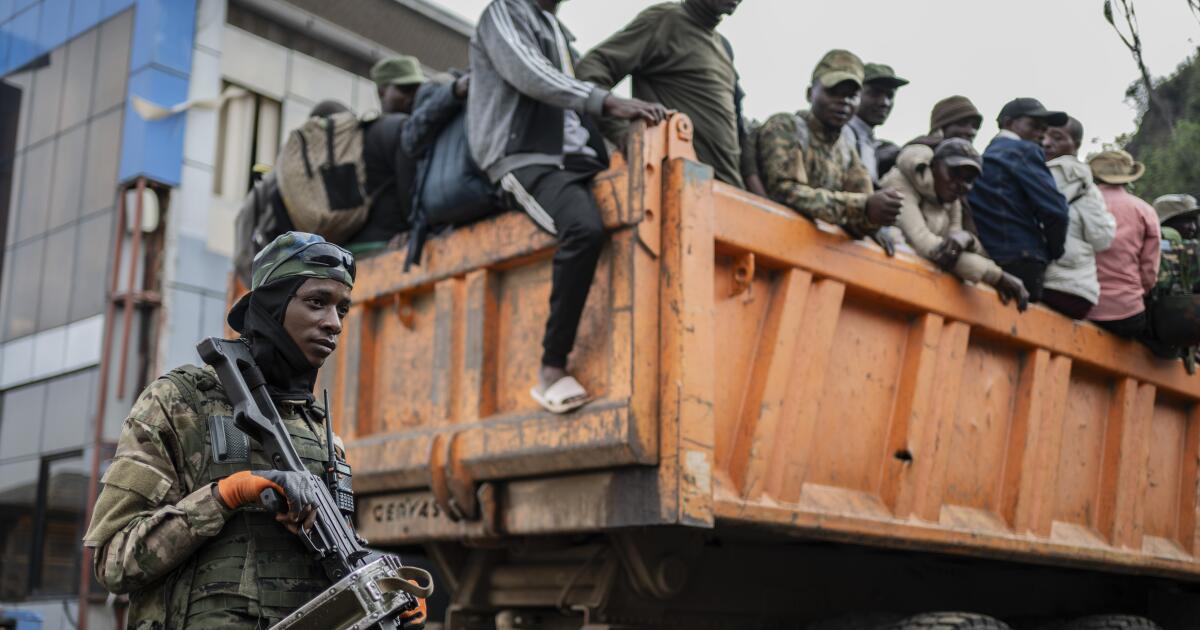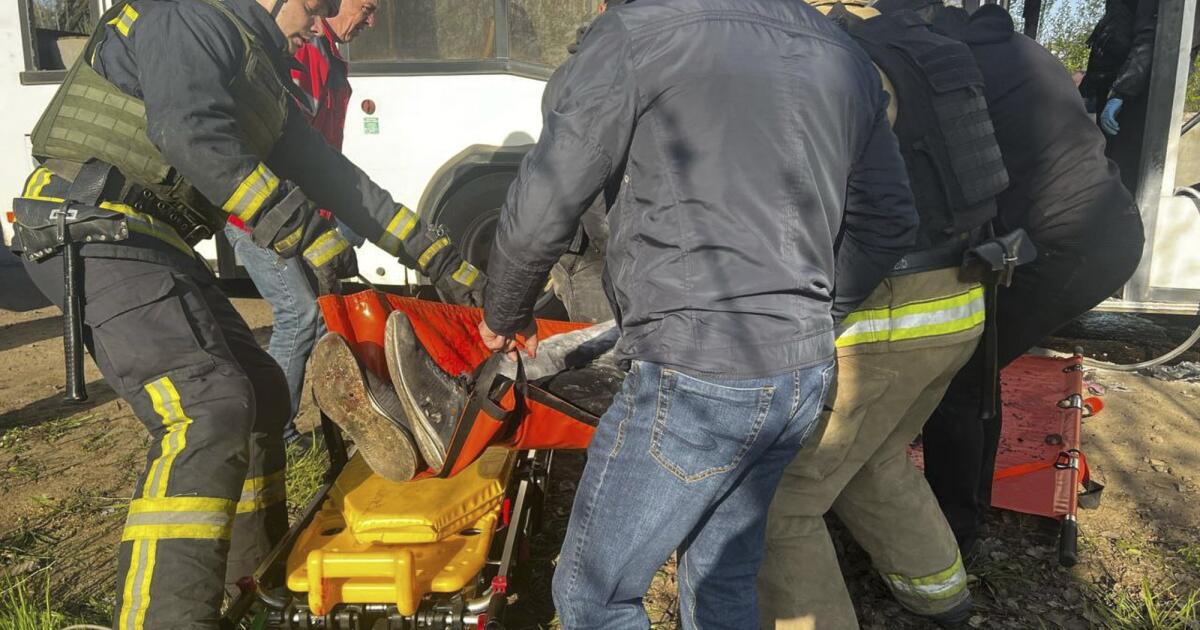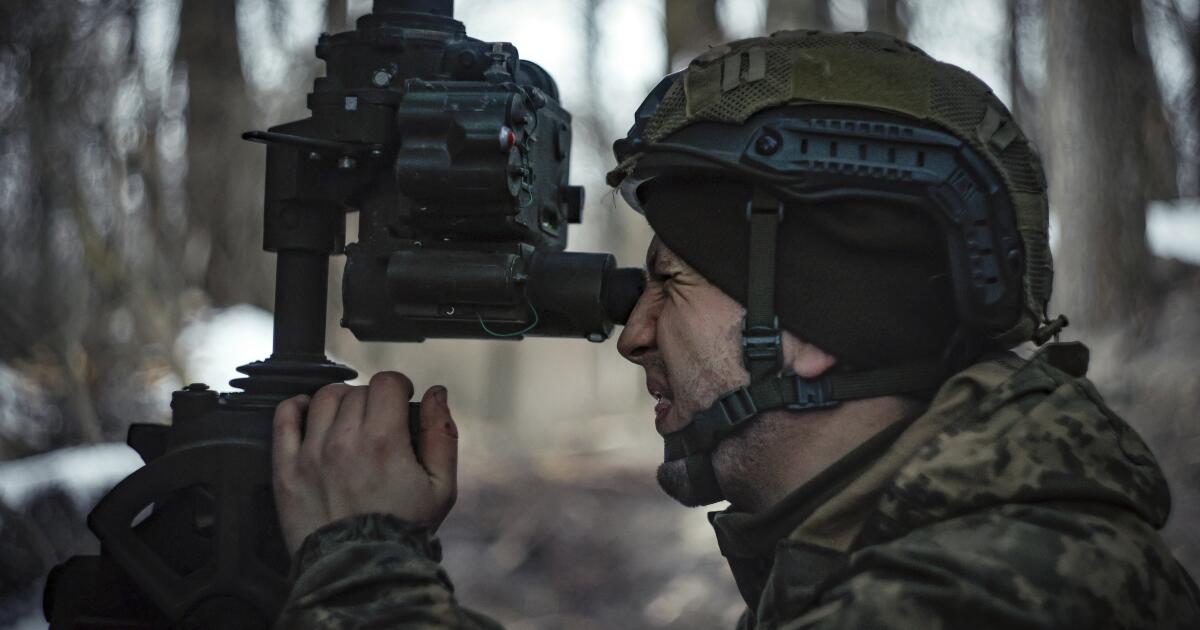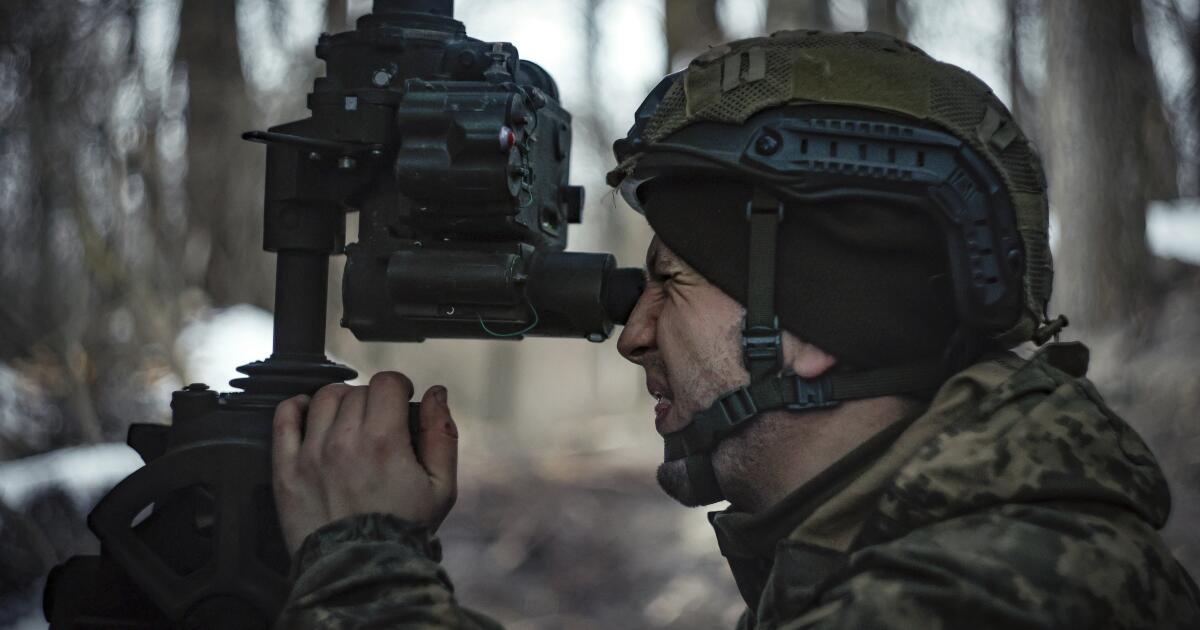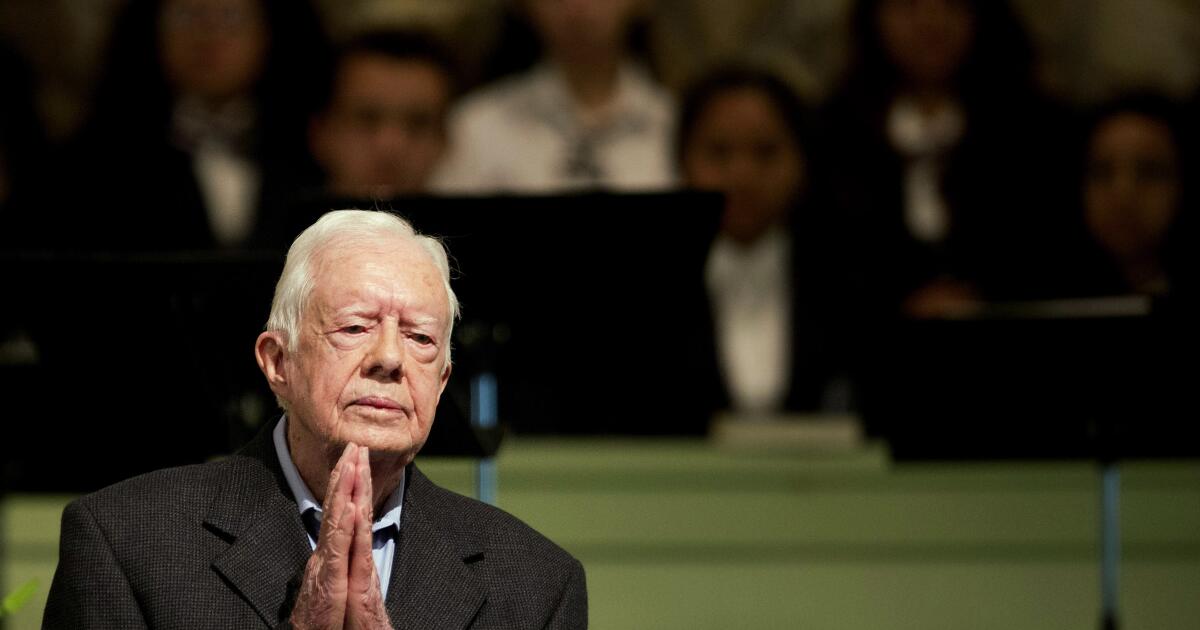PLAINS, Ga. — Before reaching the 1978 peace deal between Egypt’s Anwar Sadat and Israel’s Menachem Begin, Jimmy Carter managed months of intense preparation, high-stakes negotiations at Camp David and a field trip to the Gettysburg battlefield to demonstrate the consequences of war.
But looking back on his most celebrated foreign policy achievement, the 39th president said intricate diplomacy ultimately wasn’t the deciding factor.
“We finally got an agreement because we all shared faith in the same God,” Carter told biographer Jonathan Alter, as he traced his Christianity, Begin’s Judaism and Sadat’s Islam to their common ancestor in each religion’s sacred texts. “We all considered ourselves the sons of Abraham.”
Carter, who died Sunday at 100, was widely known as a man of faith, especially after his long post-presidency became defined by images of the Baptist Sunday school teacher building homes for low-income people and fighting diseases across the developing world.
Yet beyond piety and service, the Georgia Democrat stood out from his earliest days on the national stage with unusually prolific, nuanced explanations of his beliefs. Carter quoted Jesus and famous theologians and connected it all to his policy pursuits, living out his own definition of what it means to be a self-professed Christian in American politics.
“Most people go to Washington in search of their own power,” said David Gergen, a White House advisor to four presidents. “Carter went to Washington in search of our national soul. That doesn’t mean those others didn’t have good intentions, but for Jimmy Carter it just seemed like a different purpose.”
What happened when Carter described his faith to ‘Playboy’ magazine
As a candidate in 1976, Carter described himself as a “born-again Christian.” Based on the New Testament, the reference is routine for many Protestants in the South who believe following Jesus means adopting a new version of oneself. To national media and voters unfamiliar with evangelical lexicon, it made Carter a curiosity.
“We saw ourselves as being very much cultural outcasts” as evangelicals in the mid-1970s, said Dartmouth College professor Randall Balmer, who has written extensively on Carter’s faith. The evangelical movement had not yet become a political force mostly aligned with Republicans, and “to have someone use our language to describe himself and still be taken seriously as a presidential candidate,” Balmer said, “was startling, really.”
Carter used the presidency to elevate human rights in U.S. foreign policy, champion environmental conservation and resist military conflict. He criticized American greed and consumerism. He proselytized to other world leaders.
Carter continued the approach for decades thereafter through the Carter Center and its global efforts on peace, democracy and public health. Into his 90s, Carter criticized American militarism and noted one of Jesus’ biblical monikers: “Prince of Peace.”
“He carried his faith with him every minute of every day, and he put it to use every single minute of every single day,” said Jill Stuckey, a Plains resident and longtime friend of Carter and his wife, Rosalynn, who died in November 2023 at 96.
Carter’s faith insisted on public service above politics
U.S. Transportation Secretary Pete Buttigieg attended some of Carter’s church lessons in Plains, Ga., and sought the former president’s counsel during his own campaign in 2020. He said Carter elevated faith beyond partisan divisions.
“There are a lot of conservatives who seem to use the Bible almost as a weapon or a cudgel, and there are a lot of liberals who seem to use faith mostly as a way to desperately signal that they’re not bad people,” Buttigieg told the Associated Press. “President Carter demonstrated a third thing — faith that calls you to make yourself useful to others.”
Carter’s unabashed evangelism was an outlier in a Democratic Party that grew more secular and pluralistic during his public life. Yet Carter advocated “absolute and total separation of church and state” and opposed public money for religious schools. He admired the Rev. Billy Graham personally, but called it “inappropriate” to invite the nation’s leading evangelical to lead White House prayer services, as Graham did for previous administrations.
Carter further distinguished himself from many evangelicals by criticizing Israel’s treatment of Palestinians and taking liberal stances on race relations, women’s rights and, as he grew older, LGBTQ+ rights. He once described feeling shocked when a “high official” in the Southern Baptist Convention told him in the Oval Office that “we are praying, Mr. President, that you will abandon your secular humanism as your religion.”
By his later years, Carter “was happy with the label of ‘progressive evangelical,’” Balmer said.
How did Carter come to define his faith?
Carter grew up as the son of a deacon in the Southern Baptist Convention, a conservative denomination founded before the Civil War as a regional splinter group that supported slavery. He did not openly question his father’s segregationist views or the white supremacist origins of his denomination, and he didn’t yet consider himself an evangelical as a young man. But he had exposure to Black evangelical traditions by occasionally visiting St. Mark AME Church, the congregation of the tenant farming families that worked his father’s land.
“I could see spirit, sincerity and fervor in their worship services that we lacked in our church in Plains,” Carter once wrote.
Decades later, during the civil rights movement, Carter urged his Plains congregation to allow integrated worship, but he and Rosalynn stood virtually alone. Carter was a state senator by then, and notably did not offer such explicit integration advocacy beyond church walls.
After his failed bid for governor in 1966, Carter was “disillusioned with politics and life in general,” he wrote. His sister Ruth, a well-known evangelist and faith healer, persuaded him to go on “pioneer missions.” The future president knocked on doors to share the gospel in Pennsylvania and in Spanish-speaking neighborhoods of Massachusetts. He came to see these sojourns as a catalyst to “apply my Christian faith much more regularly to my secular life.”
Carter spread his gospel to folk singers and communist leaders
Carter even got to share his Christianity with Bob Dylan, in a one-on-one session the iconic folk singer sought with the Georgia governor in 1971.
In 1977, during his first foreign trip as president, Carter was invited by Edward Gierek, Poland’s top leader under Moscow’s Soviet control, to speak without their aides present, Carter later recalled. Gierek was “somewhat ill at ease” while explaining that he was an atheist in conformity with the Kremlin, but wanted to learn about Christianity. So Carter shared some Christian principles, and “asked him if he would consider accepting Jesus Christ as his personal savior.”
Gierek replied that he could not make a public declaration, and “I never knew what his decision was,” Carter later wrote. But in 1979, Gierek rebuffed Moscow’s orders by allowing newly elected Pope John Paul II to visit his native Poland. The Kremlin deposed Gierek in 1980, but that visit became a seminal moment in John Paul’s papacy and his efforts to break the Soviet Union.
At a White House dinner, Carter pressed Chinese leader Deng Xiaoping to allow freedom of worship and Bible ownership and admit American missionaries. Xiaoping allowed the first two but not the latter. Carter in 2018 noted projections that China, by 2025, will have more Protestants than America.
And at Camp David, Carter prayed often and talked openly of faith with Begin and Sadat, unpacking ancient animosities between their religions.
Carter evolved on equal rights and gay marriage
When the Carters left the White House in 1981, having had enough of the lingering racial tensions at Plains Baptist Church, they transferred to nearby Maranatha Baptist Church, Balmer said. Carter’s hometown funeral will take place there after his state service at Washington’s National Cathedral.
Carter disaffiliated from Southern Baptists two decades later, at the age of 76, because the denomination’s leadership, he said, demeaned women as subservient to men in the home, church and wider society.
Carter remained at Maranatha, noting that the congregation’s deacons were divided about evenly between the sexes.
“There is one incontrovertible act concerning the relationship between Jesus Christ and women,” Carter explained in his final book, “Faith,” published in 2018. “He treated them as equal to men, which was dramatically different from the prevailing custom of the times.”
Carter had a slower shift on LGBTQ+ matters. In a 1976 campaign interview with Playboy magazine, he said he considered sexual relations outside of marriage a sin and, thus, could not easily reconcile homosexuality. The answer did not contemplate same-sex marriage as a legitimate civil or religious institution.
Carter asked: ‘What would Jesus do?’
As his 75th wedding anniversary approached in 2021, however, Carter had a different view on government- and church-sanctioned marriage for same-sex couples. “I don’t have any opposition to it,” he told AP, declaring himself “very liberal” on any issue “that relates to human rights.”
Sexuality “will continue to be divisive” within Christianity, he predicted, “but the church is evolving.”
Buttigieg, an Episcopalian whose same-sex marriage is recognized by his church, said Carter’s willingness to be open about his faith, in all its complexity, provides a “tremendous example” for “a generation of Christians who don’t believe that God belongs to any political party.”
The Rev. Bernice King, the daughter of slain civil rights leader Martin Luther King Jr., praised Carter as a “man of peace and compassion” and argued that for all his books and expositions and Sunday school lessons, the Baptist from Plains hewed to a simple faith.
“He looked at the life of Jesus Christ and how Christ interfaced and interacted with people,” King said. “He wrestled with that as a leader. I think he took serious: ‘What would Jesus do? … What would somebody that is love-centered do?’”
Barrow writes for the Associated Press.
